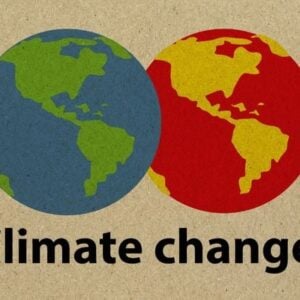Global efforts to combat poverty are gaining momentum through a multifaceted approach involving legislative action, educational initiatives, research partnerships, and innovative technological solutions. Lawmakers, educators, researchers, and technologists are collaborating to address the complex challenges of poverty, aiming for sustainable and impactful change.
Key Takeaways
- Bipartisan legislative efforts in the U.S. are crucial for sustaining foreign aid and addressing global poverty.
- Education is a powerful tool for breaking cycles of poverty, with organizations building schools and providing literacy programs.
- Local partnerships are vital for researchers seeking to develop effective and scalable solutions to educational disparities and poverty.
- Ensuring access to reliable and affordable energy is a critical component in the fight against global poverty.
- Innovative approaches, including AI-assisted collaboration, are being explored to accelerate progress in poverty eradication.
Legislative Action for Global Poverty Relief
A bipartisan group of U.S. lawmakers is actively engaged in combating global poverty through appropriations, legislation, and advocacy. Senators like Jeanne Shaheen and Chris Coons, alongside Representatives Joaquin Castro and Brian Fitzpatrick, are championing initiatives focused on gender equity, early childhood development, food aid, and health security. Their work underscores the connection between foreign engagement, humanitarian values, and national interests. Senator Lindsey Graham also emphasizes international health financing as a component of national security. These efforts highlight the importance of sustained investment in programs that assist vulnerable communities and promote global development.
Education as a Pathway Out of Poverty
Organizations like buildOn are making significant strides by using education as a primary tool to end global poverty. For nearly 35 years, buildOn has constructed thousands of schools in underserved rural communities across countries such as Burkina Faso, Haiti, and Malawi, impacting hundreds of thousands of lives. Their programs cater to all ages, offering literacy and numeracy skills to adults, with a particular focus on empowering women. By partnering directly with local communities, buildOn ensures its educational initiatives are sustainable and locally supported, providing lifelong learning opportunities and equipping communities with the tools to break generational poverty cycles.
Research and Local Partnerships
Researchers at the University of Notre Dame are employing a partnership-driven approach to tackle the learning crisis in low- and middle-income countries. By collaborating with innovative local organizations in Kenya, Senegal, and Uganda, they aim to scale early-grade reading interventions and improve educational outcomes. This approach ensures that research designs are grounded in local realities and challenges, fostering trust and strengthening the impact of interventions. These collaborations are crucial for developing evidence-based strategies that can be scaled effectively and sustainably, ultimately informing policy and practice to address global poverty.
Energy Access and Poverty Reduction
Addressing global energy poverty is another critical front in the fight against poverty. Senator John Barrasso has introduced legislation aimed at eliminating prohibitions on traditional energy projects, such as coal, natural gas, oil, and civil nuclear energy, at international financial institutions like the World Bank. The bill advocates for increased financing of these projects to provide developing countries with stable and reliable electricity, which is essential for economic growth and poverty reduction. This initiative seeks to ensure that financial institutions support critical energy infrastructure that can lift millions out of poverty.
Innovative Approaches to Poverty Eradication
New methodologies, such as "vibe teaming," which leverages artificial intelligence to enhance human collaboration, are emerging to accelerate efforts in ending extreme poverty. This approach combines domain expertise with AI capabilities to rapidly synthesize information and generate strategic insights. A recent commentary produced through this method proposes a new paradigm for poverty eradication, emphasizing the need for new technologies, country-led efforts, and a shift away from outdated assumptions. The strategy includes scaling unconditional digital cash transfers, developing resilient rural opportunity zones, implementing community-delivered employment guarantees, providing enterprise enablement grants, and bolstering nutrition and vaccine delivery in fragile settings. This innovative approach highlights the potential of AI to transform how knowledge is generated and applied to solve complex global challenges.
Sources
- 5 Lawmakers Supporting Global Poverty Through Bipartisan Action, The Borgen Project.
- buildOn: Education To Help End Global Poverty, The Borgen Project.
- Through local partnerships, Notre Dame researchers seek solutions to global poverty | News | News &
Events | Keough School of Global Affairs, Keough School of Global Affairs. - Barrasso Introduces Bill to Combat Global Energy Poverty, U.S. Senate (.gov).
- Vibe teaming to end extreme poverty globally, Brookings.







